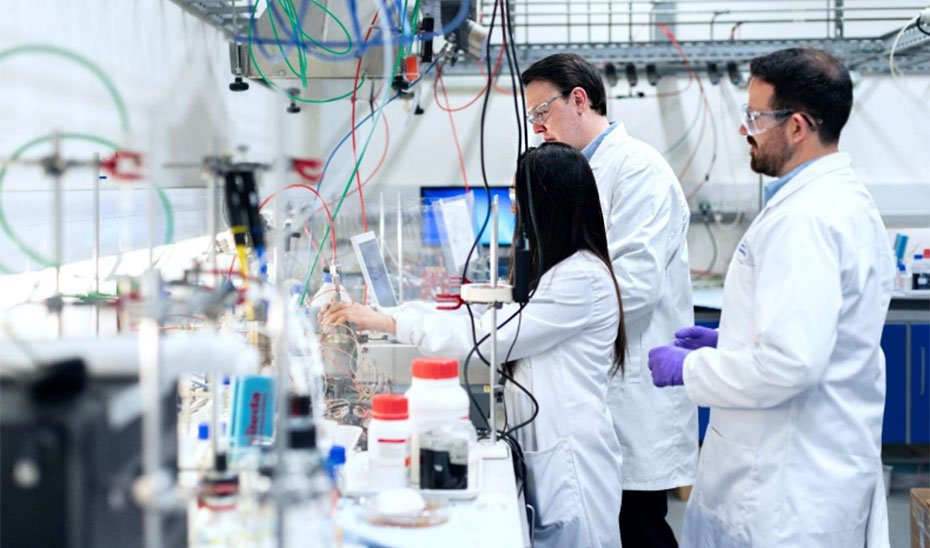he The Andalusian Knowledge System concluded the year 2022 with 2474 research groupswhich translates to a file 2.70% more than in 2021 It represents a cumulative increase in 5.23% since 2018. The teams associated with Andalusian State Universities are particularly growing, reaching a number of 2,193, up 3.01% from 2021 and 5.79% more from 2018. The growth in the number of groups is also significant, led by women, which exceeds 30% for the first time ( 30.11% of women versus 69.89% of men), after an annual increase of 1.72%. This data has been updated by the Ministry of University, Research and Innovation, based on information extracted from the Andalusian Scientific Information System (SICA).
In 2474 research groups 29674 people carry out their scientific activity, number increased 4.06% since 2018Especially thanks to the increase in personnel in the service of public academic institutions, which contribute 88.64% of the research groups and 88.09% of their staff to the Andalusian knowledge system.
The public university system as a whole has increased the number of research and development teams in the past four years to a total of 120 teamshighlighting the universities of Granada (29 new groups), Seville (21), Malaga (19), Almeria (15) and Cordoba (14), followed by Jaén (9), Cadiz and Huelva (6) and Pablo de Olavid (1). The number of employees associated with these teams increased by 1,268 people (5.10%) in the past four years.
The three scientific areas in which the number of research groups has increased the most since 2018 are social and legal sciences (12 new groups), natural resources and the environment (11), and health sciences and technologies (9); While it was repeated in percentage terms natural resources, the environment (the number of groups grew by 6.08%), production technologies (5.71%), physics, chemistry and mathematics (3.60%).
With regard to the employees who were integrated into the research groups in various fields of knowledge, an increase of 443 people stands out in the research groups in health sciences and technologies, followed by the field of social and legal sciences (311 people) and humanities (270). Proportionately, the scientific fields that attracted the most employees in the past four years were production technologies (their number of employees increased by 10.21%), health sciences and technologies (9.66%), and information and communication technologies (7.69%).
Humanities and health sciences, the areas with the most clusters in 2022
Most of the Andalusian research teams are devoted to the humanities (26.40%) followed by health sciences and technologies (17.31%); social and legal sciences (16.69%); Physics, Chemistry, and Mathematics (9.55%); natural resources and the environment (7.97%); biology and biotechnology (6.93%); agriculture (6.14%); production technologies (6.14%) and information and communication technologies (5.56%).
88.67% (2136) work in Andalusian universities, while the rest, 11.33% (273), are non-university research groups. Therefore, the Andalusian Universities are the entities that bring together the majority of these teams, of which almost half (1,076) are associated with the Universities of Seville (562) and Granada (514), two institutions that are among the oldest of these. that make up the Spanish university system. The University of Granada is the university with the largest number of affiliated groups in the fields of health sciences and technologies, natural resources and the environment, information and communication technology; While Sevilla leads the fields of biology and biotechnology. physics, chemistry and mathematics; Humanities; social and legal sciences; and production techniques. For its part, the University of Cordoba brings together the largest number of research groups in agriculture.
Non-university groups are mainly associated with CSIC centers (114), health research, development and innovation institutions (124) and other organizations such as research institutes, technology centers and private institutions (43). In fact, Andalusia is the second autonomous community with the largest number of CSICs in its territory, with 25.
In terms of the personnel that are part of these groups, the Universities of Granada and Seville account for 43.98% of the total, with 6,616 and 6,465 members, respectively., followed by the universities of Malaga (3,514), Cordoba (2,459), Cadiz (2,003), Jaén (1,503), Almeria (1,499), Pablo de Olavid (1,146) and Huelva (966). The total number of employees associated with research groups in health institutions is 1641, of groups that depend on CSIC centers 1320, and of the rest of the entities 532.
By scientific fields, the research groups with the largest number of employees are humanities (7,938 people), followed by health sciences and technologies (5,028) and social and legal sciences (4,587). The groups in the field of physics, chemistry and mathematics reach 2,513 members, those for information and communication technology 2,045 people, the natural resources and environment group 2,041, the field of production technologies 1964, the field of biology and biotechnology 1866, and the field of agriculture. 1692 members.
Reducing the gender gap
In recent years, there has been a decrease in the gender gap in the leadership of research groups in Andalusia, therefore The number of women serving as principal investigator for a group of Andalusian Knowledge System increased by 112 in the last four years, 17.69%, while the number of men did so by 11.64%.. This means that the percentage of female leaders of research teams has increased from 26.92% in 2018 to 30.11% in 2022. Out of a total of 2,474 research groups, 1,729 are men and 745 are women.

“Social media evangelist. Student. Reader. Troublemaker. Typical introvert.”



:quality(85)/cloudfront-us-east-1.images.arcpublishing.com/infobae/TEQF6EONZRFGLLLDIDD4L2O4EE.jpg)

:quality(75)/cloudfront-us-east-1.images.arcpublishing.com/elcomercio/XU32LRAEZFDDPNVHLFU3CKVBYY.jpg)

More Stories
Venezuela ranks fourth in female leadership in science and technology in Latin America
In Portuguesa and Sucre they explore the wonderful world of science
The university court overturns the expulsion of two teachers and a chemical sciences student